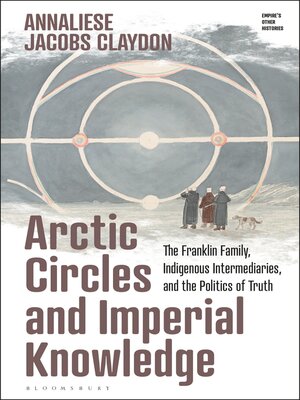Arctic Circles and Imperial Knowledge
ebook ∣ The Franklin Family, Indigenous Intermediaries, and the Politics of Truth · Empire's Other Histories
By Annaliese Jacobs Claydon

Sign up to save your library
With an OverDrive account, you can save your favorite libraries for at-a-glance information about availability. Find out more about OverDrive accounts.
Find this title in Libby, the library reading app by OverDrive.



Search for a digital library with this title
Title found at these libraries:
| Library Name | Distance |
|---|---|
| Loading... |
In 1845 an expedition led by Sir John Franklin vanished in the Canadian Arctic. The enduring obsession with the Franklin mystery, and in particular Inuit information about its fate, is partly due to the ways in which information was circulated in these imperial spaces. This book examines how the Franklins and other explorer families engaged in science, exploration and the exchange of information in the early to mid-19th century. It follows the Franklins from the Arctic to Van Diemen's Land, charting how they worked with intermediaries, imperial humanitarians and scientists, and shows how they used these experiences to claim a moral right to information.
Arctic Circles and Imperial Knowledge shows how the indigenous peoples, translators, fur traders, whalers, convicts and sailors who explorer families relied upon for information were both indispensable and inconvenient to the Franklins. It reveals a deep entanglement of polar expedition with British imperialism, and shows how geographical knowledge intertwined with convict policy, humanitarianism, genocide and authority. In these imperial spaces families such as the Franklins negotiated their tenuous authority over knowledge to engage with the politics of truth and question the credibility and trustworthiness of those they sought to silence.
Arctic Circles and Imperial Knowledge shows how the indigenous peoples, translators, fur traders, whalers, convicts and sailors who explorer families relied upon for information were both indispensable and inconvenient to the Franklins. It reveals a deep entanglement of polar expedition with British imperialism, and shows how geographical knowledge intertwined with convict policy, humanitarianism, genocide and authority. In these imperial spaces families such as the Franklins negotiated their tenuous authority over knowledge to engage with the politics of truth and question the credibility and trustworthiness of those they sought to silence.







